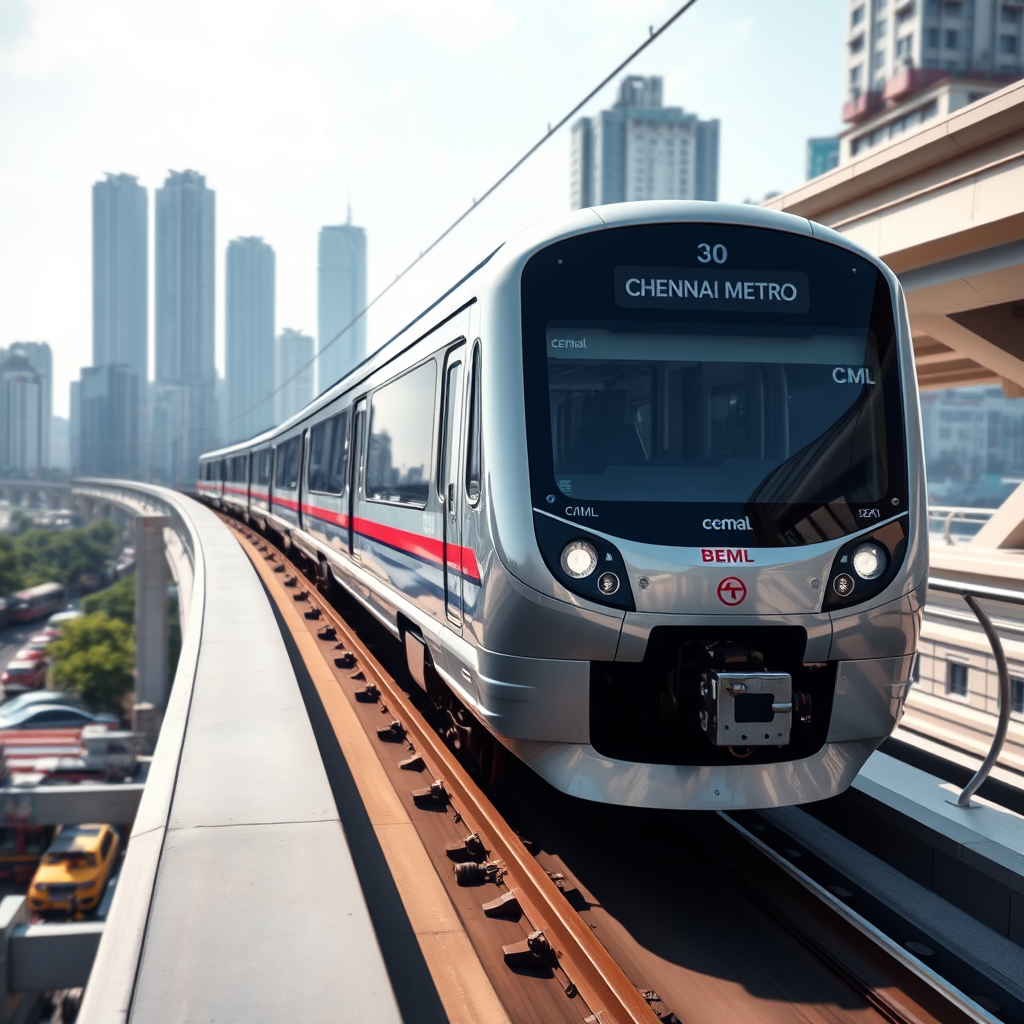BEML Wins $466M Chennai Metro Contract

This article delves into the significant contract awarded to Bharat Earth Movers Limited (BEML) by Chennai Metro Rail Limited (CMRL) for the design, manufacture, supply, testing, commissioning, and maintenance of 210 metro cars for the Chennai Metro. This substantial undertaking represents a key development in expanding Chennai’s public transportation infrastructure and highlights the advancements in the Indian railway sector. The contract’s scope, encompassing not only the rolling stock itself but also a comprehensive 15-year maintenance agreement, underscores the long-term commitment to operational efficiency and passenger satisfaction. Furthermore, the integration of advanced technologies, such as Unattended Train Operation (UTO) (GoA4), showcases a dedication to adopting best-in-class solutions for enhanced safety, reliability, and passenger experience. We will examine the technological implications of this project, its economic impact on both BEML and the Chennai region, and its contribution to the overall modernization of India’s metro rail systems.
BEML’s Role in Chennai Metro Expansion
BEML’s contract with CMRL involves the complete lifecycle management of 210 metro cars, arranged as 70 three-car trainsets. This encompasses the design and manufacturing phases, rigorous testing and commissioning procedures to ensure adherence to safety and performance standards, and comprehensive operator training programs. The contract’s financial magnitude, approximately Rs36.58bn ($466.53m) including taxes, underscores the scale of this project and its importance to both BEML and CMRL. The delivery schedule, aiming for the first trainset in January 2027 and the final one by April 2029, indicates an ambitious but achievable timeline, requiring effective project management and supply chain coordination.
Technological Advancements and Operational Efficiency
The adoption of Unattended Train Operation (UTO) mode (GoA4) signifies a significant technological leap for the Chennai Metro. GoA4 represents the highest level of automation in metro systems, allowing for fully automated operation without the need for a driver in the train cab. This advanced technology promises enhanced operational efficiency, improved safety through reduced human error, and potentially higher frequency of train services. The successful implementation of UTO will position Chennai’s metro system among the most technologically advanced in the world, demonstrating India’s commitment to modernizing its public transportation infrastructure.
Economic Impact and Infrastructure Development
This contract holds significant economic implications for both BEML and the Chennai region. For BEML, it secures a substantial revenue stream and strengthens its position as a key player in the Indian railway industry. The project supports numerous jobs, not only within BEML’s manufacturing facilities but also across its supply chain and the broader Chennai economy. For Chennai, the expanded metro network will significantly improve urban mobility, reducing traffic congestion, commuting times, and environmental impact. The enhanced transport system will boost economic activity and improve the quality of life for residents.
Funding and International Collaboration
The project’s funding through the Japan International Cooperation Agency (JICA) highlights the significance of international collaboration in the development of India’s infrastructure. JICA’s involvement underscores the project’s alignment with global best practices and international standards for safety, reliability, and operational efficiency. This collaboration also fosters technology transfer and capacity building within the Indian railway sector, contributing to long-term sustainable growth. The project is designed to integrate seamlessly with existing and future infrastructure, supporting the larger vision of enhancing Chennai’s overall transportation network.
Conclusions
The BEML contract for the supply and maintenance of 210 metro cars for the Chennai Metro represents a momentous undertaking, showcasing significant advancements in India’s railway technology and infrastructure development. The contract’s comprehensive scope, encompassing design, manufacturing, testing, commissioning, and a 15-year maintenance agreement, underscores a long-term commitment to operational excellence and passenger satisfaction. The integration of sophisticated technologies, such as Unattended Train Operation (UTO) (GoA4), positions Chennai’s metro system at the forefront of global innovation in urban transportation. Beyond the immediate benefits of improved urban mobility and reduced congestion, the project holds substantial economic implications, stimulating job creation and fostering economic growth within both BEML and the wider Chennai region. The collaboration with JICA underlines the importance of international partnerships in achieving sustainable infrastructure development and highlights India’s proactive approach towards modernization and technological enhancement in its public transportation sector. The successful completion of this project will serve as a benchmark for future metro expansion projects across India and a testament to the country’s growing capabilities in the field of advanced railway technology.




